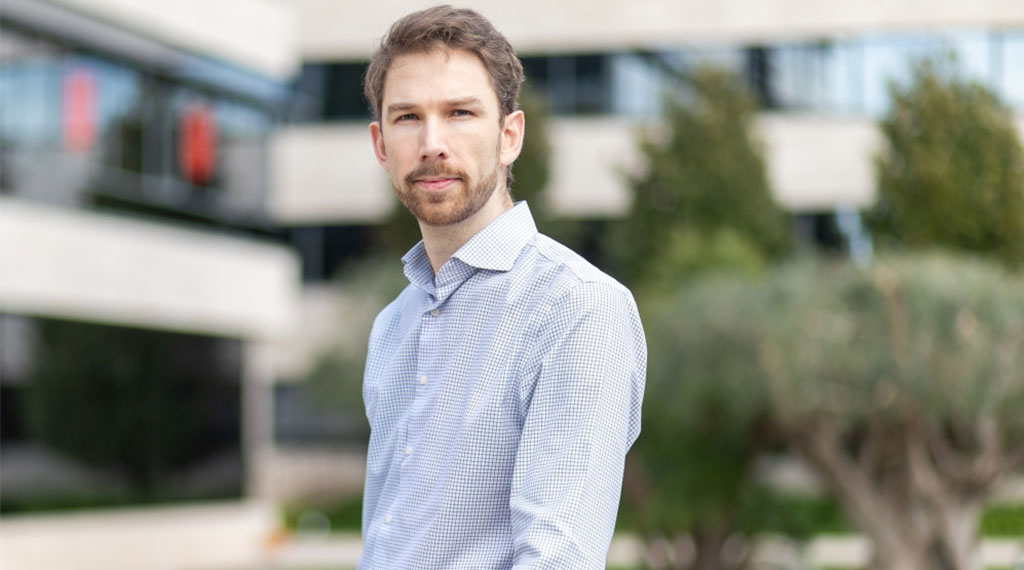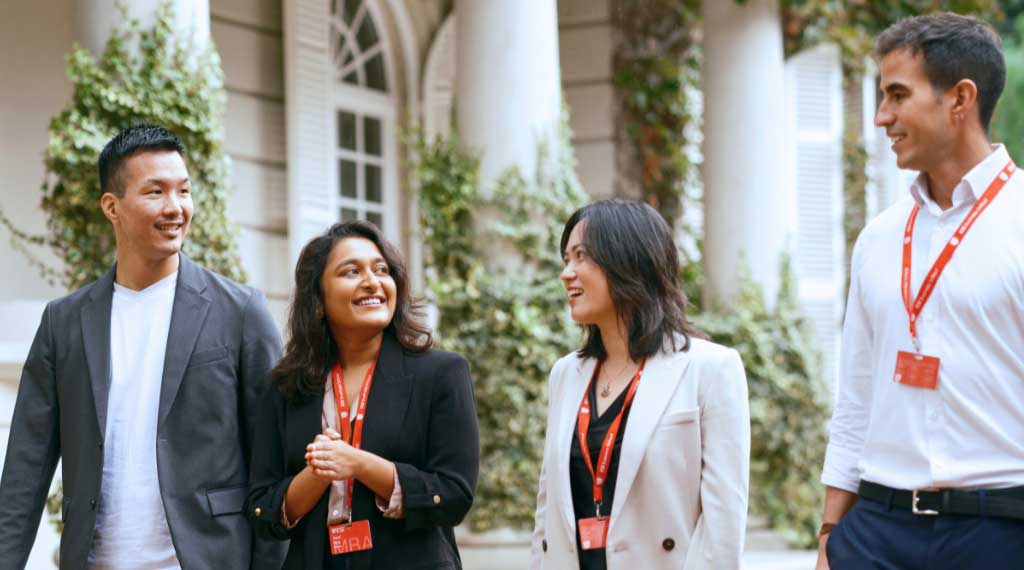Stories
Making a splash
Gregoire de Hemptinne (MBA ’17) finds entrepreneurial opportunity in water loss
Gregoire de Hemptinne is one of the founders of Shayp, which is dedicated to eliminating water waste.
Photo: Roger Rovira
September 25, 2020

What does it take to combine an entrepreneurial spirit, digital expertise and concern for the environment? For Gregoire de Hemptinne, the key ingredient was water.
When de Hemptinne finished his MBA at IESE in 2017, he was interested in pursuing an entrepreneurial project, preferably linked to sustainability. On the lookout for opportunities, he attended a meeting of business angels, where he met Alex McCormack, an architectural engineer specializing in sustainable building design.
McCormack was working for the city of Brussels, where he had seen that water leakage in buildings cost literally hundreds of thousands of euros per year – in wasted water as well as in structural damage. Many water drips go undetected and unreported, compounding their cost; beyond that, by creating the moist environments that promote mold, they can also pose a health risk.
The solution? Founding Shayp, a startup which seeks to eliminate the leakage by developing smart sensors that are installed on existing water meters and can detect water flows indicating loss, alerting owners in real time.
That not only saves money, but also makes more efficient use of water resources, so much of which is literally poured down the drain. “Our environmental impact is really tangible, really concrete,” de Hemptinne says.
In addition to an MBA from IESE, de Hemptinne holds a Master’s degree in Computer Sciences and Engineering from the Ecole Polytechnique de Louvain, bringing management and digital knowledge to the project. Along with McCormack, Zineddine Wakrim, its CTO, was also a co-founder of the company.
Our environmental impact is really tangible, really concrete.
COVID-19 prompts re-think of financing, strategy
But just as Shayp was gearing up to expand, COVID-19 hit, and, like businesses around the globe, its plans have been upended.
After raising €350,000 in a first round of financing, the company was about to close another €3 million in a second round at the end of March. But the coronavirus crisis made investors more cautious, and a number reconsidered their investment. Shayp pared back its financing goals, taking a more cautious approach to match the prevailing mood among investors and looking for financing in smaller increments as it grows.
That new approach paid off in December, when the company raised €1.9 million in a round led Germany’s Signa Innovations and AMAVI Capital of Belgium, two European venture capital investors specialized in property technologies. The funds will allow Shayp to expand into neighboring European countries and grow in its target segment of B2B property owners.
Confinement has also presented the logistical challenge of preventing Shayp from entering buildings to install the sensors, since the work can’t be done remotely. The inability to install new meters and invoice in turn produced cash-flow issues early in the year, resolved in part by incentives from the government.
Faced with all this, the startup took advantage of the confinement lull to re-think its strategy. “We took time to reflect on the business and also on the strategy,” de Hemptinne says. That has meant many things, including focusing on a strategy of direct sales – rather than on reaching agreements with clients such as insurance companies. Insurance companies are natural clients for Shayp, since water damage is a major source of claims, but the contracts are larger and longer term.
Direct-sale clients include any real estate owner, from small facilities managers who want to save money on their water bill to companies that run hospitals, schools, retail stores and student housing. There’s also interest from cost-conscious city planners, .. “We’re focusing on people who want to cut their water bills,” he says. Additionally, COVID-19 has made people more concerned about the risk of water damage caused by a leak in an empty building.
Staying productive and positive during lockdown
COVID-19 has given Shayp – like just about every company – lessons in telecommuting, including how to hold virtual meetings on topics such as product development, and how to maintain morale remotely, says de Hemptinne, whose own confinement experience included the birth of twins at the end of March. Belgium has had one of the highest coronavirus mortality rates in the world, relative to its population, though there are questions about over-reporting.
As lockdown lifted, Shayp has staggered occupancy levels at its offices and taken advantage of a large (and uncrowded) co-working space next to offices. It looked for ways to aid employees who are hesitant to take public transport. Shayp has eight full-time employees and two interns.
The whole experience has shown de Hemptinne the importance of adaptability, particularly as an entrepreneur. “Things can change any time,” he says.


